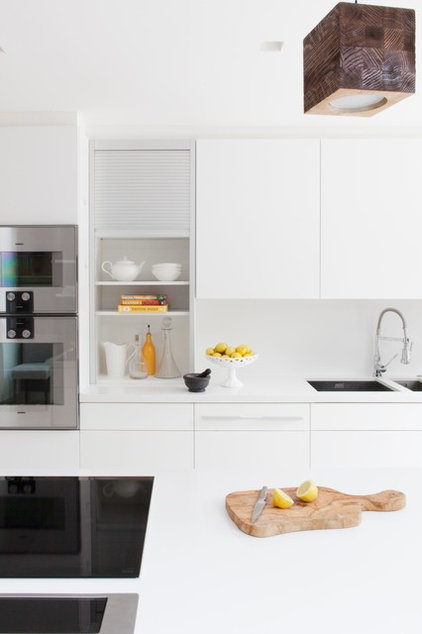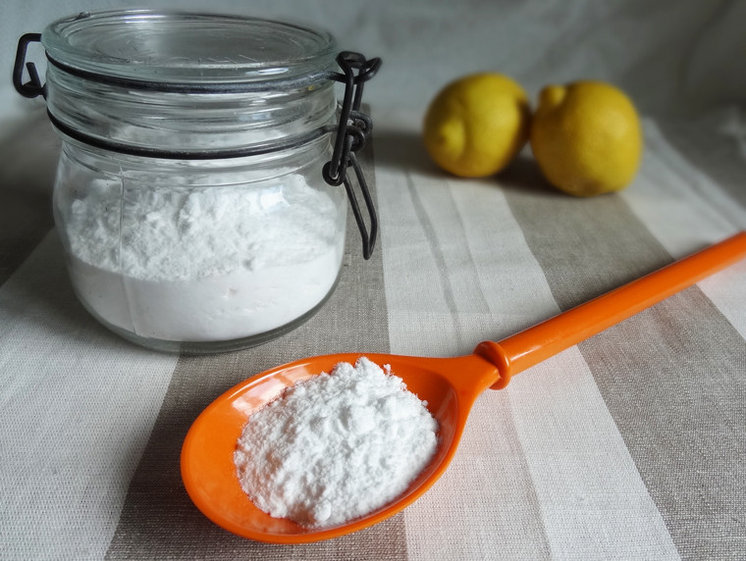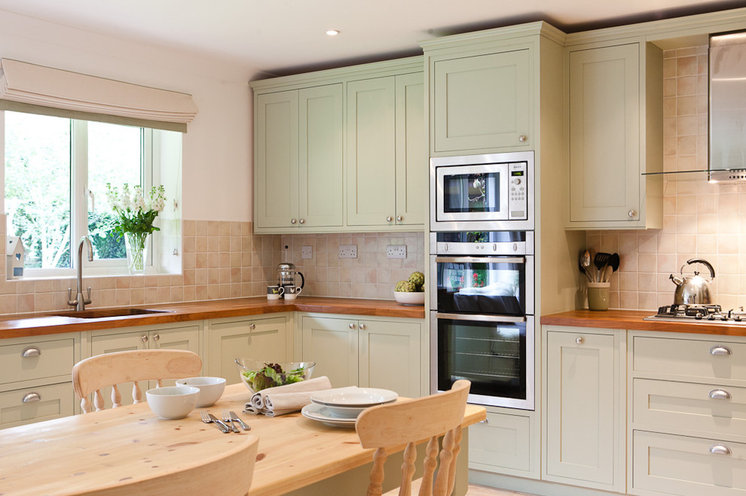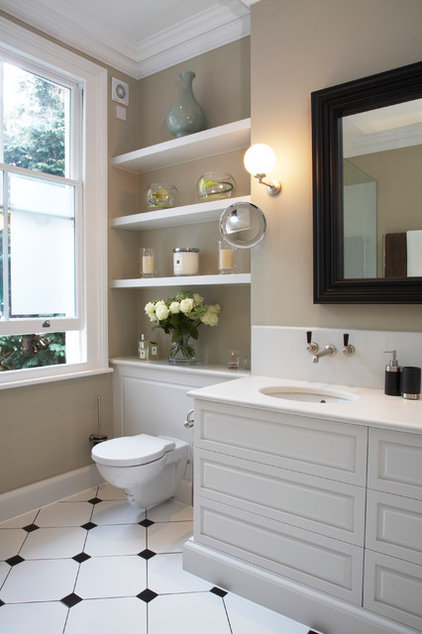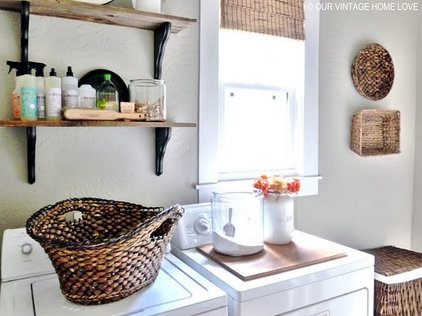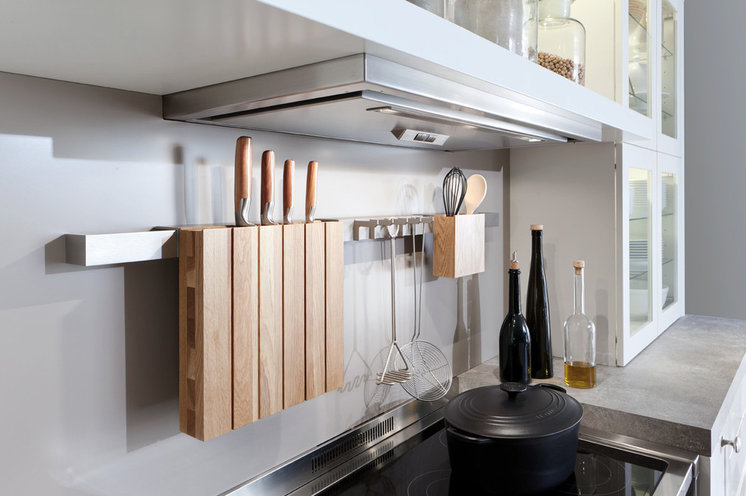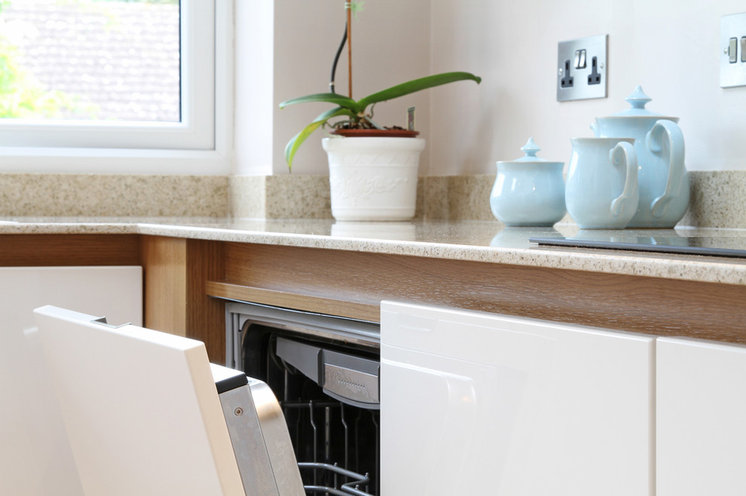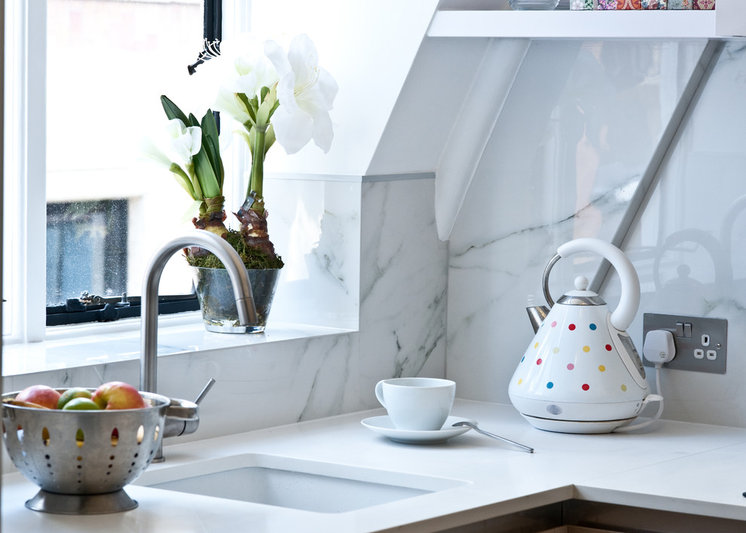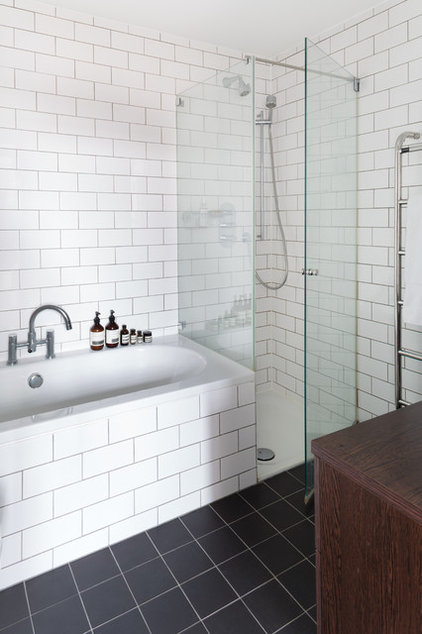Are you wary of using chemicals to clean? These simple products and tricks will keep your home spotless naturally
By Luisa Rollenhagen - Houzz
Chemical-based cleaning products have drawbacks: They’re pricey,
they may trigger health issues and their manufacture, use and disposal
can harm the environment. So if you’re approaching a spring cleaning of
your home this year, why not consider these effective all-natural
cleaning alternatives?
Lemon
Lemons are nature’s cleaning wunderkind. They have powerful antiseptic and antibacterial properties and are a natural deodorizer due to their high acidic content. Here are some suggestions for how to use lemons in your home:
Have your copper pans lost their shine? Dip half a lemon in salt or baking powder to scour your pans to their former glory.Mix a bit of lemon juice with baking soda to remove stains from plastic containers. Combine lemon peel and white vinegar in a jar, allow to marinate for a few days, then strain out the peel to use the vinegar as a cleaner. A small dish containing vinegar and lemon juice will absorb odors.Rub a slice of lemon across your chopping board to disinfect the surface.
Lemons are nature’s cleaning wunderkind. They have powerful antiseptic and antibacterial properties and are a natural deodorizer due to their high acidic content. Here are some suggestions for how to use lemons in your home:
Have your copper pans lost their shine? Dip half a lemon in salt or baking powder to scour your pans to their former glory.Mix a bit of lemon juice with baking soda to remove stains from plastic containers. Combine lemon peel and white vinegar in a jar, allow to marinate for a few days, then strain out the peel to use the vinegar as a cleaner. A small dish containing vinegar and lemon juice will absorb odors.Rub a slice of lemon across your chopping board to disinfect the surface.
Baking Soda
Baking soda, like lemon, is another one of nature’s cleaners. Also known as sodium bicarbonate, this mildly alkaline substance functions as a gentle abrasive, deodorant and more.
A thick paste of baking soda and water can be useful in removing surface rust. A more liquid mixture of baking soda and water can function as an all-purpose light cleaner that’s particularly effective on grease.
Baking soda, like lemon, is another one of nature’s cleaners. Also known as sodium bicarbonate, this mildly alkaline substance functions as a gentle abrasive, deodorant and more.
A thick paste of baking soda and water can be useful in removing surface rust. A more liquid mixture of baking soda and water can function as an all-purpose light cleaner that’s particularly effective on grease.
Clean your oven. A thick
paste of baking soda and water can be applied to the bottom of the oven
to clean it. Let it sit for a couple of hours or overnight before
scraping it off and wiping the surface.
Brighten the bowl. Baking
soda also is a winner in the bathroom. Throw a cup of baking soda into
the toilet bowl and let it sit for more than an hour. Then add a cup of
white vinegar, let the mixture sit for a while longer, and flush.
Safely clean your clothes. Baking
soda also is a great addition to your laundry room. When added to your
washing machine, it can soften your clothes and remove any unpleasant
odors.
Fun fact: If your clothes happen to be contaminated with uranium, add a cup of baking soda to the wash to get rid of that pesky nuclear radiation. This sounds like a joke, but it’s not. Apparently scientists have discovered that sodium bicarbonate will bind with depleted uranium dust and remove it from clothes, which chemical detergents can’t manage. Talk about an all-purpose cleaner. Nonetheless, don’t go playing in uranium dust anytime soon, kids.
Fun fact: If your clothes happen to be contaminated with uranium, add a cup of baking soda to the wash to get rid of that pesky nuclear radiation. This sounds like a joke, but it’s not. Apparently scientists have discovered that sodium bicarbonate will bind with depleted uranium dust and remove it from clothes, which chemical detergents can’t manage. Talk about an all-purpose cleaner. Nonetheless, don’t go playing in uranium dust anytime soon, kids.
White Vinegar
Mentioned a couple of times already, white vinegar is a weak acetic acid that can be used in almost all aspects of home cleaning, as it has strong antibacterial properties.
Vinegar diluted in water is an effective stain remover for various textiles. It’s also a great natural deodorizer, and can be combined with various other natural products, such as lemon juice, to absorb odors. Simmer vinegar with water on the stove while cooking to prevent cooking odors. Vinegar can help remove strong scents left over from fish, onion and garlic too.
Mentioned a couple of times already, white vinegar is a weak acetic acid that can be used in almost all aspects of home cleaning, as it has strong antibacterial properties.
Vinegar diluted in water is an effective stain remover for various textiles. It’s also a great natural deodorizer, and can be combined with various other natural products, such as lemon juice, to absorb odors. Simmer vinegar with water on the stove while cooking to prevent cooking odors. Vinegar can help remove strong scents left over from fish, onion and garlic too.
Refresh your dishwasher. If
your dishwasher could use a thorough cleaning, ditch the expensive
chemical tabs and instead fill a dishwasher-safe bowl with two cups of
white vinegar and set it on the top rack. Let the otherwise empty
dishwasher run one cycle to get rid of any odors and bacteria.
Descale your kettle. Vinegar
is your friend again here, although you can use lemon juice, too. Pour a
50/50 mixture of white vinegar and water into your kettle, allow it to
boil, then rinse the kettle out once it cools down a little but is still
warm.
Make your windows shine. Vinegar
to the rescue again. Fill an empty spray bottle with a 50/50 mixture of
white vinegar and water and use a microfiber cloth to wipe down your
windows and avoid any streaking. This also works wonders for mirrors.
If the grime still doesn’t scrub off, add two parts baking soda to the vinegar-water mix to make a thick paste. Let the mixture sit on the grout for at least 15 minutes before scrubbing it off.
